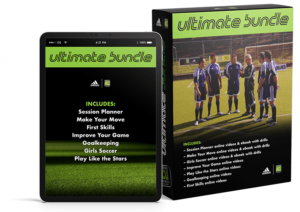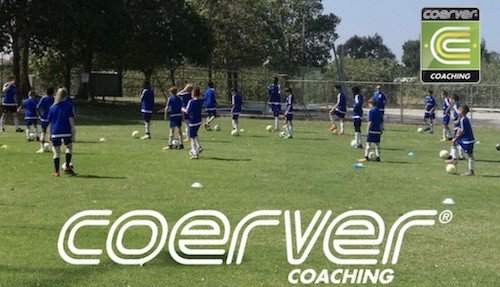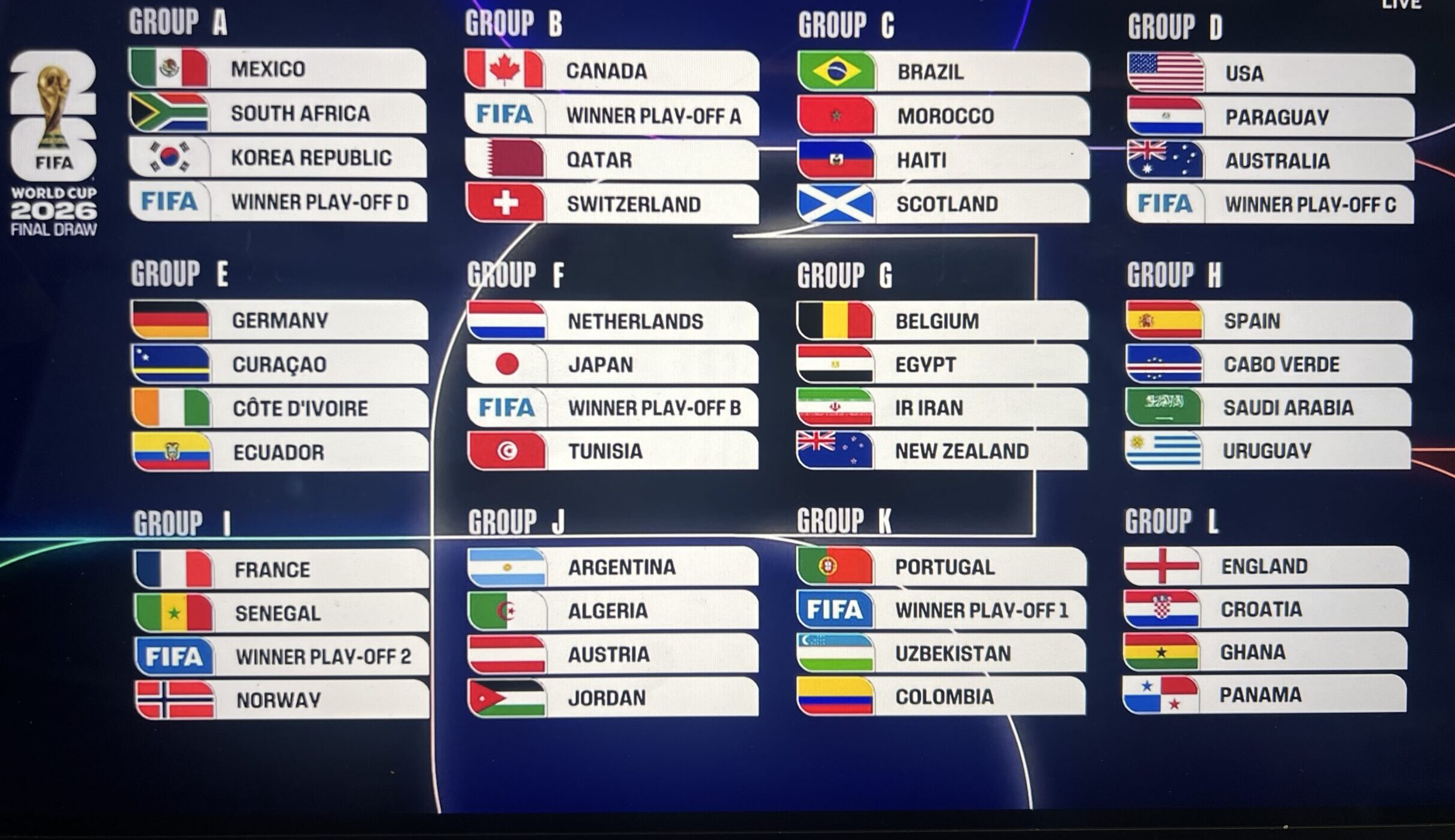Aquire College Level Soccer SkillsHow to Acquire College Level Sports Skills and then …Present Them to College Soccer Coaches by Bob Collins, Editor Student Athlete magazine Our best advice. Begin your preparations early. How early? Teams of six year old soccer players are flooding the fields. Kids so small you can’t believe that anyone makes cleats in their size! We encourage parents of young children to try every sport that the kids and their friends enjoy. Partly to try on different sports … until you find a good fit … and partly to meet new friends beyond your own circle. Our garage is a museum of adventures into horseback riding, baseball, softball, basketball, lacrosse, volley ball, tennis, golf, track, cross country, swimming and, of course, soccer. New: From College Soccer to the Pros: What Schools Produces the Most MLS Players?
In 1991 we developed our SYSTEM of publications around soccer because that sport’s growth offered the most opportunities to male and female student athletes; in 1996, after our methods had helped over 100,000 soccer players get to college, we expanded our SYSTEM of publications to support student athletes in all sports. Today, thanks to our friends at Reader’s Digest, today our magazine is named "College Opportunities for Student Athletes." Reader’s Digest helps High Schools and other organizations fundraise by selling our magazine subscriptions. Our 23 publications and methods work for all sports; every player, parent and youth organization official should utilize our Student Athlete magazine, 18 HOW TO pamphlets and video … our 3 books (scholarships, camps, tournaments) are designed specifically for soccer, but their concept works in every sport. Editor, Bob Collins, says "The size and shape of the ball or playing field changes, while our proven methods are identical for every sport." Since 1991 our unique publications have helped student athletes earn a great education, for the least possible cost, courtesy of sports and good grades. The combination of excelling in school and excelling in a sport is a potent formula for success in the college admissions and scholarships process, and our publications teach you how to recruit and network an important family friend … your college coach. Begin early. By Freshman year in high school, when every grade is permanently recorded on your transcript, A’s and B’s will have become a habit. Beginning early works because practice really does make perfect. Studies confirm that, for all but a gifted few, practice is the most dependable way to gain skills in the classroom and on the field. Colleges are shifting investments to sports played by boys or girls of ordinary stature, low cost/low injury sports and sports that sell seats in the stadium and in the class room. When Boston University discontinued its 91 year old football program it was losing $3 million. Others will follow … over 90% of college football teams lose money. Pick a good club producing competitive teams that do well at tournaments. Check with college coaches and speak with parents of players who were recruited and those who were not. Very few clubs truly understand the importance of developing both players and coaches. Doing both well stabilizes the program, unites the parents and gets all the kids to college … year after year. If your club can’t get it right, cut your losses early and move to a better program that prepares players for college opportunities. Tournaments are a great way to be seen by college soccer coaches. Study and pick the high profile tournaments listed in our "Best Tournaments book." Some tournaments reviewed have over 100 college coaches in attendance. Playing well at tournaments is just one more way to be noticed by college coaches. For more information, click on Best Tournaments in the dark blue margin to your left. Well organized clubs will publish a team profile containing every player name, address, phone number, jersey number, GPA, SAT/ACT scores and soccer honors (ODP, CAP, club and high school). This information is important for the college coach. Make it easy for him to use. Prepare a profile even if there aren’t many Seniors on the team. College coaches follow Sophomores and Juniors invite them to summer camp. Use your participation at tournaments as an early opportunity to get noticed. Plan ahead … college coaches do! Olympic Development (ODP), is one of the best ways to be seen by college coaches. Many ODP coaches are college coaches who volunteer their time to help 100,000 players participate each year. Tryouts are open to club members and are held by birth year in every state. If you make the team of 25 (18 + 7 alternates) you are considered one of the best players in the state in your age group, a very important step in your future. Your state team then plays teams from other states at the Regional Camp. The Regional Coaches pick the Regional Team and Regional pool. Selection means that you are one of 25 best players, in your age, in a 13 state region and among the 100 best ODP players in the nation. The Regional team then competes against the other 3 Regional teams. From these teams, the national team and pool are selected for that age group. Participation in the ODP has helped many college-minded players get noticed by college coaches. It’s simple economics. A typical travel budget for a college soccer coach may be only $3,000 per year, so it is essential that colleges recruit where the highest concentration of good players are found. That means ODP Regional tournaments are good places to be seen by recruiting college coaches. CAP, the new College Athlete Program from AYSO offers an innovative player evaluation and training system that produces well rounded and qualified student athletes for college opportunities. This new program includes standardized testing and extensive written player evaluations to guide players and develop college level skills. Participants receive valuable seminars in preparing for college opportunities and, when the budget permits, a subscription to our Student Athlete magazine. Open to both USYSA and AYSO players, all college-minded players should look into this outstanding program. One day "auditions" are offered in most states. Call (561) 498-1546 for info. Summer Soccer Camps … Our favorite way to "try on" the college you may someday play for. Student Athlete magazine, has been called the Consumer Reports of college-bound soccer. Our Special Camper’s issues, recommend college affiliated camps. We do our homework. All recommended camps are good … but quality training is only half of a camp’s value to you. As parents of serious young soccer players, we know how important, camp selection is, for the college-minded player. Three most important things to do, to increase your chances of playing college soccer, are: 1. Participate in the ODP or CAP Can you be certain your club team will win the state championship … or if you will make the ODP team … or if your favorite college coach is watching at the tournament when you make the move of your soccer career? Of course not. But, if your favorite college operates or staffs a camp, use it to "try on" coach, campus, dorm, and food … for nearly four days … and help your college selection process, too. By the end of camp, both you and the coach will know if his college should be in your future. If it’s just not a good fit, ask him to suggest other colleges and to act as your reference. Camps are important to college coaches. Competitive players make the camp a success, elevate the level of play, and challenge other players. They stimulate the coaching staff, too. Everyone learns more and has more fun. Many college coaches prefer to recruit players they have had the opportunity to observe and "try on" under game-like conditions at summer camp. Retired Indiana University’s Head Coach, Jerry Yeagley (Six Time Men’s Div. I National Champs) said, "Our campers get a feel for university life and the IU soccer program; this helps them evaluate us. Meanwhile, coaches are evaluating campers in an intense week of training; it’s an important part of our recruiting process, and many potential players have been identified in this way." "Mark Berson, Head Men’s coach at the U. of South Carolina, says, "Over the duration of a camp, the coaches get to know the campers and the campers get to know the coaches and the environment. This is a huge bonus for both in the recruiting process." For more information, click on Best Soccer Camps in the dark blue margin to your left. Soccer resumes and cover letters are important to establish yourself as interested in attending his school. Unfortunately, there are a lot of good players writing bad soccer resumes and hurting their own chances. Make your cover letter personalized with coach’s name on the letter. Tell him why you want to go to his school, what you want to study and why you want to play for him. Show the coach that you are familiar with the school. If you can change the name of the coach to send the letter to another school, then the letter isn’t good enough. Your resume includes your position(s), year of graduation, GPA and SAT/ACT scores, ODP, CAP, club and high school experience. On a separate page include several references, at least two of whom are college coaches or coaches he will know. Notify your references, so they will expect the coach’s call. If you’re good in another sport, like track or cross country include your fastest times in events that you ran. If you were Captain of the volleyball team, or all-conference in another sport, say so. Type everything in a large font and don’t clutter the resume with information not pertinent to your selection as a student athlete. Paste a color photo in the resume’s upper right hand corner. For more information click on Winning Your Scholarship book in dark blue margin to your left. Send a video only as a last resort. Four time national championship coach, Jim Blankenship, says "No player has ever received a scholarship from a video alone. College coaches must see you play. Send them a bad video, and you can be sure they will never come." But if you begin early, targeting only a handful of "best fit" schools where they will want you to play, and recruit the college coaches at tournaments, summer camps and ODP or CAP, you’ll never need a video. If, like one of our subscribers, the Governor of Alaska, you have a REAL distance problem, use our "How To Produce a Video" pamphlet to present the player in the best possible setting. Click on How To Pamphlets Set in dark blue margin to your left. Recruiting services are a waste of money. College coaches want to hear directly from players or parents who are genuinely interested in their programs. Save your money, then go visit the campus, see the team play and meet the coach. Time for a REALITY CHECK. Think about what college coaches want. Every college coach needs to find student athletes who want to play for him, want to attend his college, and are both athletically and academically qualified to do so. Please read that sentence again. Now rank your 20 "best fit" colleges by their soccer performance (our "Winning Your Scholarship" book has the team performance data you need) with the best at the top and worst at the bottom. Remember, you selected each these "best fit" colleges, so you could be happy at any of them. Now concentrate on those in the middle of your ranking. Why? Because those schools do not have a top soccer program … but, of course, would like to have one … and that is why they will want YOU. Those at the bottom are your safety net schools. By focusing on a few "best fit" colleges, you have done a large part of the coach’s job for him … so he is very happy to meet you. It’s so simple … just go where they want you. It simply works. If you found this article useful, please subscribe to our magazine, College Opportunities for Student Athletes, and purchase our 3 books, 18 pamphlets and video which comprise our College Scholarships SYSTEM that has helped over 1 million families. All are available now at: Student Athlete.net
|
Your Soccer Resource Center















